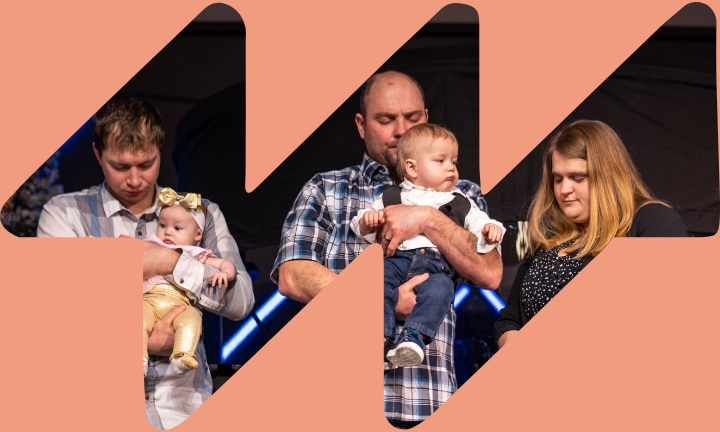In the journal of the “Journal of the American Medical Association” a few years ago, Jane McAdams told the story of her sixty-nine-year-old mother who had lived a life deeply marked by the depression of the 1930s. The evidence showed in her frugality and utterly practical perspective on all material things. The only extravagance that she ever permitted herself, McAdams wrote, was a frilly nightgown kept in the bottom drawer “in case she should ever go to the hospital.”
That day had come. All the symptoms that made her visit the hospital necessary spoke of serious cancer, and McAdams feared the moment when she would have to tell her mother that the prognosis for the future was very poor.
The daughter wondered, “Should I tell my mother? Did she already know? If not, did she suspect? Could I give her any hope? Was there, in fact, any hope?
As she wrestled with these questions, McAdams noted that her mother’s birthday was approaching. Perhaps she could brighten her mother’s days by purchasing a new nightgown because the one she had in the bottom drawer was yellowed, limp, and unattractive. So she purchased and presented a new nightgown and a matching robe. “If I could not hope to cure her disease, at least I could make her feel like the prettiest patient in the entire hospital.”
McAdams described how her mother studied the gown after the package was opened. After a while, she pointed to the wrappings of the gown and said to her daughter, “Would you mind returning it to the store? I really do not want it”. Then, picking up the paper, she pointed to a display advertisement and said, “this is what I truly want, you could get me that.” What she pointed to was a display advertisement that showed expensive designer summer purses.
My reaction was one of disbelief. Why would my mother, so careful about extravagance, ever want an expensive summer purse in January, one that she could not possibly use until June? She would not even live until spring, let alone summer. Almost immediately, I was ashamed and appalled at my clumsiness, ignorance, and insensitivity, call it what you will. With shock, I realized she was finally asking me what I thought of her illness. She was asking me how long she would live. She was, in fact, asking me if I thought she would live even six months. And she was telling me that if I showed her that I believed she would live until then, she would do it. She would not let that summer purse go unused.
That day I returned the gown and the robe and bought a summer purse. That was many years ago now. The purse is worn out and long gone, as are about a half dozen others. Next week my mother flies to California to celebrate her 83rd birthday. My gift to her? The most expensive summer purse I could find. She will use it well.
Hope is a powerful asset, especially when it is based on Biblical truth. It can put wind in my sail of life.
Alexander Solzhenitsyn Was in the “Russian Gulag” for years because he refused to bow to the Russian State. When he was released after the death of Stalin, he traveled widely and wrote books on the horrors of the Gulag. I quote him, “It was only when I lay there in rotting prison straw that I sensed within myself the first stirring of good. Gradually it was disclosed to me that the line separating good and evil does not pass through the state nor between classes of people, or between political positions. But, it passes right through the human heart-so I bless you, prison for having been in my life”.
We have all been in places like McAdams’s mother or Solzhenitsyn; perhaps not literally, but places in life that have stretched us out and made us look deep inside to see who we really are and what we really believe. At times like that, we can be overcome with despair and surrender to the circumstances around us that seek to devour our very souls, or we can place hope at the center of our lives and allow God to make a path through the wilderness for us.
There is a brief book in the Old Testament that portrays this; the book of Ruth. Three destitute women must decide what to do. They have all lost their mates. The mother, Naomi, has lost her mate and her two sons. She, with her two daughters-in-law, decides to return to Bethlehem. One of the daughters-in-law, Orpah, decides that the journey is too great, and she returns home. Ruth was determined to stay with her mother-in-law, though Naomi was able to offer her nothing, nothing but hope.
I will be the first to admit it is the hardest to keep hope alive when it is most needed. It would have been so easy for McAdams’ mother to surrender to her horrible disease. It would have been so easy for Solzhenitsyn to rot in a Gulag prison. It would have been so easy for Ruth to return with Orpah to be with her birth family rather than hope for something better. In her case, she married Boaz, and out of that relationship came Jesse and the last son of Jesse was David, King of Israel.
When there is no hope, despair finds lodging. Despair leads me downward on a path that eventually will lead to destruction. We see this in every layer of our culture today. There are people who live hopeless lives, and they live lives of despair.
The ultimate hope is in Jesus Christ, who offers hope to us. To His Apostle, He said, “I am going back to my Father and to your Father, to my God and to your God. Life need not be lived alone. As Job refused to surrender his hope, I urge you not to surrender your hope.



